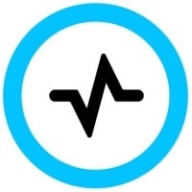

Graylog Enterprise and Grafana Loki are key players in the log management and analysis sector. Grafana Loki has an advantage due to its advanced features and integration capabilities, despite Graylog Enterprise's cost-effectiveness and strong support offerings.
Features: Graylog Enterprise offers centralized log management, robust analytics, and seamless integration with security incident management systems. Its alerting features and excellent integration capabilities make it highly effective. Grafana Loki excels in log aggregation, scalability, and integrates well with Grafana's visualization tools, making it ideal for dynamic environments.
Room for Improvement: Graylog Enterprise could enhance its user interface and simplify its setup processes. It may also benefit from expanding its visualization tools. Grafana Loki should work on reducing the technical skills needed for deployment, improve initial setup cost efficiency, and expand its customer support options.
Ease of Deployment and Customer Service: Graylog Enterprise supports flexible deployment models with robust support, ensuring easier setup and issue resolution. Grafana Loki, integrated into existing Grafana environments, demands higher technical skills but offers strong community support, aiding in deployment complexity.
Pricing and ROI: Graylog Enterprise offers a cost-effective initial setup, providing excellent ROI through its comprehensive features and support. Grafana Loki, although potentially more expensive initially due to scalability and integration, provides long-term value, particularly in Grafana-integrated environments.
| Product | Market Share (%) |
|---|---|
| Grafana Loki | 5.1% |
| Graylog Enterprise | 4.1% |
| Other | 90.8% |
| Company Size | Count |
|---|---|
| Small Business | 7 |
| Midsize Enterprise | 8 |
| Large Enterprise | 4 |
| Company Size | Count |
|---|---|
| Small Business | 10 |
| Midsize Enterprise | 5 |
| Large Enterprise | 9 |
Grafana Loki is a powerful log aggregation and analysis tool designed for cloud-native environments. Its primary use case is to collect, store, and search logs efficiently, enabling organizations to gain valuable insights from their log data.
The most valuable functionality of Loki is its ability to scale horizontally, making it suitable for high-volume log data. It achieves this by utilizing a unique indexing approach called "Promtail," which efficiently indexes logs and allows for fast searching and filtering. Loki also supports log streaming in real-time, ensuring that organizations can monitor and analyze logs as they are generated.
By centralizing logs in a single location, Loki simplifies log management and troubleshooting processes. It provides a unified view of logs from various sources, making it easier to identify and resolve issues quickly. With its powerful query language, organizations can extract meaningful information from logs, enabling them to gain insights into system performance, identify anomalies, and detect potential security threats.
Loki's integration with Grafana, a popular open-source visualization tool, allows users to create rich dashboards and visualizations based on log data. This combination enhances the observability of systems and applications, enabling organizations to make data-driven decisions and improve overall operational efficiency.
Graylog Enterprise, recognized for log collection, real-time search, and enriched data handling, offers an open-source framework that integrates seamlessly with Elasticsearch. Its user-centric interface streamlines data correlation and log aggregation, supporting both backend services and comprehensive monitoring needs.
Graylog Enterprise stands out for its stability and powerful log management capabilities, facilitating efficient log aggregation, real-time updates, and data analytics. Users benefit from its plugin-based alerting, user-friendly interface, and support for microservices, including Docker integration. The ability to search in detail, flexible API integration, and data enrichment features are highly valued. Challenges include collector application issues, desired visualization enhancements, and authentication integration improvements. Users seek advancements in UI customization, backup functions, and easier rule creation.
What are Graylog Enterprise's most important features?In industrial use, Graylog Enterprise is crucial for audit trailing in financial sectors, facilitating security event identification and error monitoring. Backend teams leverage real-time analytics for swift issue resolution, while developers appreciate the comprehensive log visualization enabled by Docker integration for microservice management.
We monitor all Log Management reviews to prevent fraudulent reviews and keep review quality high. We do not post reviews by company employees or direct competitors. We validate each review for authenticity via cross-reference with LinkedIn, and personal follow-up with the reviewer when necessary.